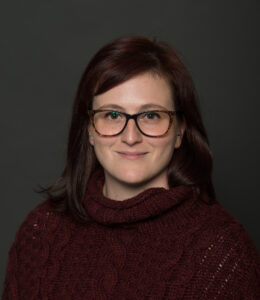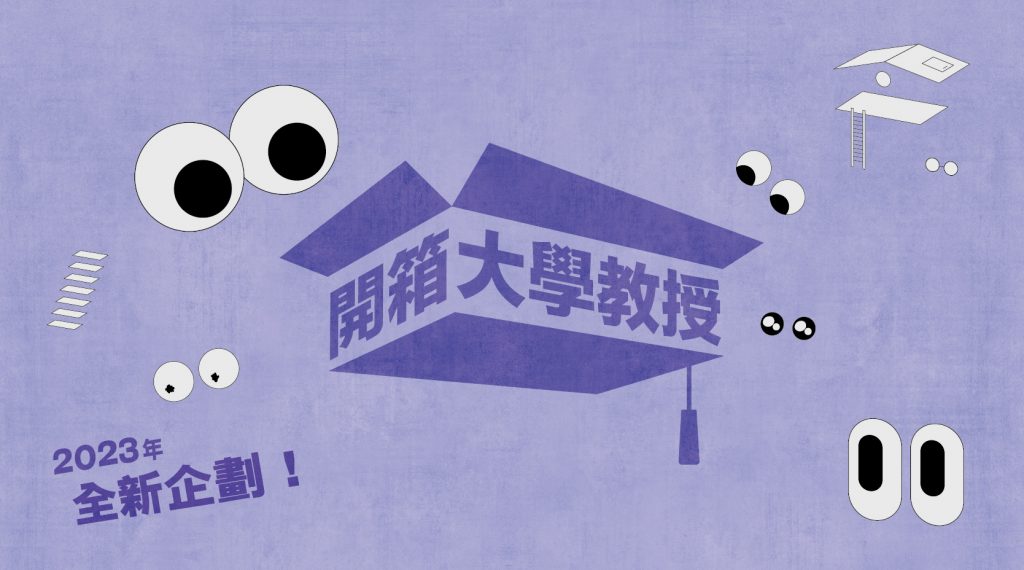【開箱大學教授】From English Literature to Cognitive Neuroscience|Corey Fernandez, Assistant Professor at Nevada State University (1)
Navigating Career Uncertainty and Exploration
interview & author|Shao-Fang (Pam) Wang
Reviewer|Corey Fernandez
Serendipitous Connections

Dr. Corey Fernandez is a cognitive neuroscientist whose research focuses on learning and memory. She explores how humans update existing memories with new experiences and develop structured knowledge. Surprisingly, her academic journey began with a major in English at Columbia University. She had a passion for literature in high school, and humanities subjects were generally her strongest. Initially, she intended to major solely in English during college. However, her trajectory shifted when she enrolled in an introductory psychology class to fulfill social science core curriculum requirements. Captivated by the subject, she pursued it further by taking more advanced classes, reading related books, and joining a research lab, eventually majoring in both English and Psychology.
PhD or Job? No Need to Rush the Decision
Upon graduating from college, like many others, Corey found herself uncertain about what to do next. While she was inclined towards eventually pursuing a PhD and an academic-related career, she wasn’t sure about where to start and how to translate her interests into a concrete career path. She didn't even know what a PhD was! (In the US, you don't need to have a master's degree to apply for a PhD program.) Recognizing her uncertainty, she sought advice from various people at college and learned that she should take time to explore different opportunities and gain work experience first. More importantly, she learned that she didn't need to rush into a PhD program or make any career decisions hastily. Now, looking back, she realizes the advantages of working and acquiring additional experience, which not only enhanced her PhD applications and CV but also informed future research endeavors. It was not a step back even though it may have felt that way at the time. She encourages students who are uncertain about their career paths to take their time, explore various options, and gain as much experience as possible before making any long-term commitments.
This decision led Corey to explore diverse research job opportunities, aiming to use her work experience to gain clarity on her interests within the field of cognitive neuroscience. This journey led her to join the Alzheimer's Disease Research Center at Mount Sinai School of Medicine as a research coordinator. Her initial research focused on concussion-related cognitive impairments in veterans exposed to blasts in the Iraq and Afghanistan conflicts, later shifting her focus to Alzheimer's disease.
At Mount Sinai, Corey was treated as a partner in research, providing her with valuable experiences and training that extended beyond typical research coordinator duties. This opportunity eventually allowed her to become an independent researcher, providing numerous opportunities for publishing and presenting her work at different venues. Overall, her experience at the center was instrumental in shaping her career path and providing her with valuable opportunities for growth and development as a researcher.
Feeling Lost? Talk to Someone Around
After two years of work experience, Corey applied to four PhD programs in New York, with the intention of remaining in the city. Despite receiving three offers, she realized that none of them matched her research interests completely. It became a crisis of uncertainty about her next steps. Working in a clinical setting with medical doctors who didn't have experience with academic PhDs, she found herself lacking guidance on how to apply to PhD programs and choose a research lab.
She reached out to everyone she could possibly think of, seeking advice from a wide range of sources, both from her undergraduate studies and from her work experience. Corey learned that she didn't have to commit to any of the available options if they didn't feel right. Following this advice, she broadened her search to labs she truly wanted to work with, reaching out to professors she admired. She reached out to professors she admired, despite the intimidating nature of the process. Corey admitted that it wasn't easy, particularly when contacting professors who didn’t know her and discussing her plans. Nonetheless, she's glad she took the initiative, as many professors responded to her emails. One such professor was Dr. Mike Yassa at UC Irvine. After some correspondence, Dr. Yassa offered her a position in his memory lab to gain more neuroimaging experience (fMRI). Accepting the offer, Corey moved to California, worked with Dr. Yassa for a year, and applied to more schools. It was during this process that she finally clarified her career goals and research interests, ultimately deciding to join the neuroscience program at Stanford University.
Exploring Widely Gives You a Fresh Perspective on the World
Reflecting on her journey, Corey emphasizes the importance of patience and exploration when faced with uncertainty in making future decisions. She advocates for engaging with a wide range of people, including professors, individuals in labs, fellow students, and others, to gain valuable perspectives and insights. Throughout this process, Corey learned the significance of aligning decisions with genuine interests and taking the time to carefully consider options. She encourages students to trust their instincts and pursue experiences that resonate with them, even if it means deviating from the expected path. Corey believes that investing time in self-discovery and exploration is not wasted, as it ultimately strengthens life experiences, resumes, and career advancement in the long run.
In addition, Corey also realized that she initially pursued what she was good at - English. However, her true curiosity lies in psychology and neuroscience. She recognizes that curiosity is essential because it motivates individuals to keep learning and remain interested in their pursuits. If one intends to pursue a career for decades, Corey recommends prioritizing curiosity and interest.
Finally, despite transitioning to a more scientific path, Corey truly values her training in English. Her background in English has equipped her with critical reading, interpretation, and communication skills essential in scientific pursuits. She emphasizes the significance of these skills in science, as much of a scientist’s work involves examining and interpreting written works. Moreover, she highlights the substantial role of writing in science, which many may overlook. In reality, many researchers spend more time writing than conducting hands-on research!

